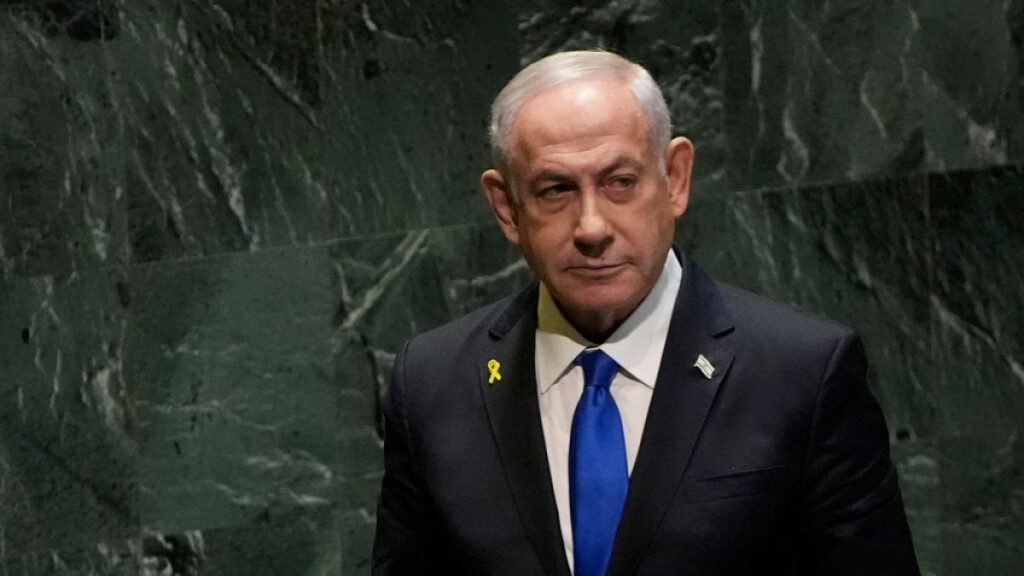The Israeli military has stated its intention to retaliate against a missile attack from Iran, which Iran defended as a “rational and legitimate response” to previous Israeli actions. Israeli Prime Minister Benjamin Netanyahu condemned the attack as a “big mistake” and vowed that Iran would pay for its actions. Netanyahu gathered his Security Cabinet for a late-night meeting, emphasizing that Israel would respond in kind to any attacks. Iran’s Permanent Mission to the United Nations insisted that their strike was legal and justified, citing Israeli actions against the Iranian-backed militant group Hezbollah in Lebanon. Iran issued warnings to Israel, stating that any further aggression would be met with a swift and decisive response, referencing past incidents involving Hamas, Hezbollah, and Iranian leaders in the region. The UN Security Council is set to convene an emergency meeting in response to the escalating tensions between Israel and Iran.
US President Joe Biden expressed condemnation of Iran’s missile attack on Israel, noting that the US had been prepared for the incident and had worked closely with Israel to defend against the attack. Biden reaffirmed his support for Israel and stated that the US was in constant communication with Israeli officials. World leaders, including the EU’s foreign policy chief and the UK’s Prime Minister, also denounced Iran’s actions, calling for an immediate ceasefire in the region. The German Foreign Minister urged Iran to avoid escalating the conflict further. The IDF reported that air raid sirens were activated across Israel during the missile attack, but few injuries were sustained due to the interception of multiple missiles by Israel’s Iron Dome defense system. The international community continues to monitor the situation in the Middle East closely.
Israel Prime Minister Benjamin Netanyahu labeled Iran’s missile attack as a “failure” and warned that Iran could face a fate similar to Gaza and Lebanon. Netanyahu emphasized that Israel would retaliate against any threats or attacks directed towards them. Iran’s ambassador to the United Nations defended the missile strike as a justified response to Israeli actions in Lebanon, warning Israel of the consequences of further aggression. The UN Security Council has been called upon to intervene and prevent the situation from escalating into a full-scale regional war. The escalating tensions between Israel and Iran have sparked concerns among world leaders regarding the potential for further conflict in the region.
The UN Security Council has scheduled an emergency meeting to address the rising tensions between Israel and Iran, following Iran’s missile attack on Israel and Israel’s vow to retaliate. The Security Council’s inaction in response to Israeli aggression has been criticized by Iran, urging for decisive intervention to prevent further conflict. US President Joe Biden condemned Iran’s actions and expressed support for Israel, highlighting the close cooperation between the US and Israel in defending against the missile attack. World leaders, including the EU’s foreign policy chief and the UK’s Prime Minister, have called for an immediate ceasefire and urged Iran to avoid escalating the conflict further. The international community is closely monitoring the situation in the Middle East to prevent a full-scale regional war.
The Israeli Defence Forces reported that 180 missiles from Iran struck Israel, activating air raid sirens across the country. Despite the intense missile barrage, very few citizens were injured in the attack, thanks to Israel’s Iron Dome defense system intercepting multiple missiles. Israel Prime Minister Benjamin Netanyahu reiterated his stance on retaliation against any threats or attacks directed towards Israel, emphasizing the country’s readiness to defend itself. Iran defended its missile strike as a legitimate response to Israeli actions in Lebanon, warning Israel of the consequences of further aggression. The situation in the Middle East remains tense, with world leaders expressing concern over the potential for further escalation and calling for immediate de-escalation to prevent a full-scale regional war.









